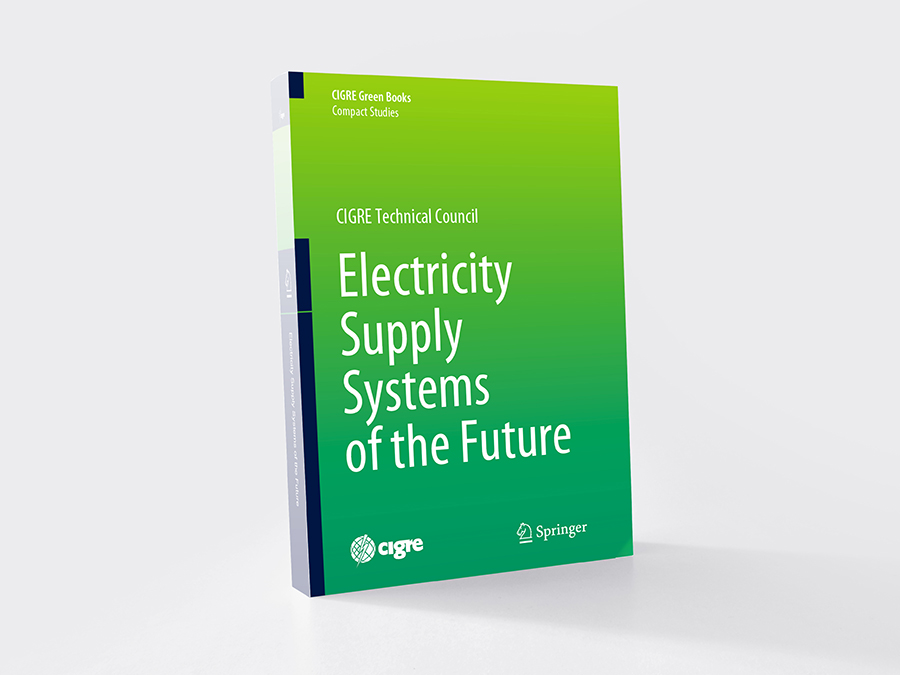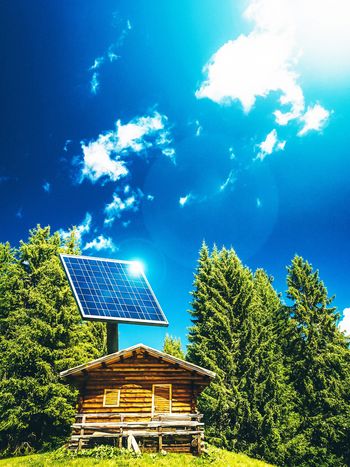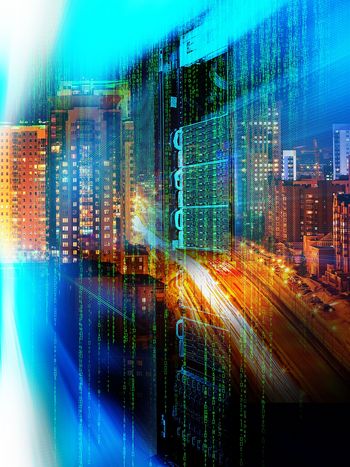Power system environmental performance
By Mercedes Vasquez, Chair & Cesar Batista, Secretary
Overview of the Study Committee C3
SC3 was created in 2002 with the main mission to produce unbiased positions and approaches on power environmental performance and impacts and their implication for management, construction, operation and investment decisions. Since in 2019 SC3 approved a new Strategic Plan, the focus of the group's activities has been broadened towards a sustainability approach, a concept that is increasing relevance withing CIGRE. The goal is to facilitate and promote the principles of sustainable development through the global exchange of information and knowledge in the field of system environmental performance, by synthesizing state-of-the-art practices and developing recommendations in line with global best practice.

Highlights
Due to The COVID crisis, SC3 activities have slowed down this year. Nevertheless, some relevant work has been done:
- SC C3 was involved in writing of the Green Book “Electricity supply systems of the future”.

The Green Book is available for purchase on our partner's website Springer.
If you are a CIGRE Member, please contact us to benefit from a 40% discount on your purchase.
- The work of WG C3.19 “Responsible management of the electric and magnetic fields” has been finished and the Technical Brochure has been published. It provides information to assist the electricity utility industry in managing the electric and magnetic field (EMF) issue. It describes known health effects from exposure to EMF, associated limits, guidelines, regulation and how to assess compliance with all of them. The possible effects at levels below the limits from the guidelines, the positions of key health authorities and guidance to effectively manage public concerns are also addressed in the TB. Finally, the brochure provides guidance on managing the risk of interference with implanted medical devices and details measures that can be used to reduce EMF where this is required.
- SC3 has launched its third tutorial, based on the work of the WG C3.19, that was presented during Paris virtual session in 2020.
- The JWG B1/C3.85 “Environmental impact of decommissioning of underground and submarine cables” has been approved.

Workstreams
SC C3 has currently 29 regular members and 9 observers representing 30 countries.
Now, we have 1 Strategic Advisory Group (SAG), 11 active Working Groups and 2 Working Groups to start in 2021, divided over our Technical Directions.
TD1 Asset management and environment
C3.09A: “Corridor management”. This WG was disbanded for a few years but TB or articles were not published. With the aim to finish the publications, the TOR of the group was reviewed and a new version of the group (C3.09A) started to work, with some old and new members. The intention of the WG is to collect information and compare regulation, procedures, methods and best practices from different countries that apply to relations with landowners and environmental aspects of corridor management.
WG C3.14 “Impact of Environmental liability on transmission and distribution activities”: The aim of the WG is to create a reference document to enable T&D utilities to understand the possible impact (practical and financial) of environmental liability and to have a view on best practices regarding prevention, investigation and remediation of environmental damage. The TB is expected to be finished soon.
WG C3.16 “Interactions between electrical infrastructure (overhead lines and substations) and wildlife": The objective of the Working Group is to gather knowledge and best practices about interactions between electrical infrastructure and wildlife. The scope was so broad that a new group was created: WG C3.17 “Interactions between wildlife and emerging renewable energy sources and submarine cables".
WG C3.16 is focused in OHL and substations dealing with all the aspects of the grid lifetime and WG C3.17 addresses renewable projects and associated transmission systems, focusing on operational aspects, though construction impacts are also considered. The Technical Brochure of WG C3.16 is currently under revision and it´s expected to be published at the end of 2021.
WG C3.22 “Vegetation management in substations”. The main intention of the work is to identify experiences and knowledge regarding the alternatives to the use of herbicides, but the scope of the work also includes the collection of best practices regarding types of surfaces and vegetation control in substations.
JWG B1/C3.85 “Environmental impact of decommissioning of underground and submarine cables”, whose work is expected to start at the end of 2021.
TD2 Sustainability: the role of the power sector
WG C3.12 “Greenhouse Gas Emissions inventory and report for transmission system operators”: The purpose of the WG was to review and recommend harmonized procedures and methods for accounting and reporting GHG emissions that can be used by TSO’s worldwide but the work of this group was temporary suspended due to a lack of members. The TOR has been updated and a new title has been proposed: “Managing GHG emissions of T&D activities. Accounting, reducing & reporting progress”. The SAG is looking for a new Convenor and participants to relaunch the works.
WG C3.18 “Eco-friendly approaches in transmission and distribution”: The scope of the work is to focus on eco-friendly approaches in electricity transmission and distribution that require extra funds. It will identify the incentives and disincentives for such approaches faced by companies for such approaches, related to regulatory and other drivers as well as good practices in dealing with external influences.
WG C3.20 “Sustainable Development Goals in the electric power sector”. The general aim of the WG is to develop recommendations on how the electric power sector should implement SDGs within their business strategies in order to reach a maximum contribution to the achievement of these goals.
WG C3.23 “Eco-design methods for TSOs/DSOs under environmental transition”. The purpose of the group is to activate and harmonize the eco-desing potential for TSOs/DSOs to reduce environmental impact, given that the implementation of a systemic eco-design approach will be a key success factor to achieve our sustainable goals.
TD3 Stakeholder engagement and public acceptance
C3.AG: “EMF and Human Health”. This AG was created to replace WG C3-01.”EMF and Health”: It has the task of following the research developments of the health effects of electric and magnetic fields and producing original reviews on some of the specific aspects of this issue.
WG C3.15. “Best environmental and socio-economic practices for improving public acceptance of high voltage substations”. The Working Group aims to make an inventory of the best practices, options, and boundary conditions for the integration of substations in their environment. The resulting Brochure intends to be an international reference document to be used in the discussion with other stakeholders. It shall help to identify workable solutions from environmental and socio-economic perspectives and increase acceptance by local authorities.
WG C3.21 “Including stakeholders in the investment planning process” (Renewed TOR of former JWG C1/C3.31). The goal of this group is to study the best practices of the Cigre members to improve the decision-making processes for grid development both to system operators and the public/local communities.

CIGRE active Working Groups / Call for experts
Conclusions
In this decisive momentum of energy transition, the SC3 must be attentive to identify power industry needs and increase its contribution to CIGRE, in order to achieve a more sustainable network, taking care of our planet and paying attention to the people.
For this task, collaborative work among CIGRE community is essential, and good communication and cooperation with other SCs is especially important for SC3.
For the next months, we also have the challenge of finishing the work of some working groups that were launched long time ago and need a boost to publish its TBs, providing updated information and conclusions relevant for the network of the future.
We are facing some difficulties due to COVID 19 scenario and the lack of face to face work, but with the effort and dedication of the members, observers and experts of C3, we´ll success.
Thank you for all their work.


